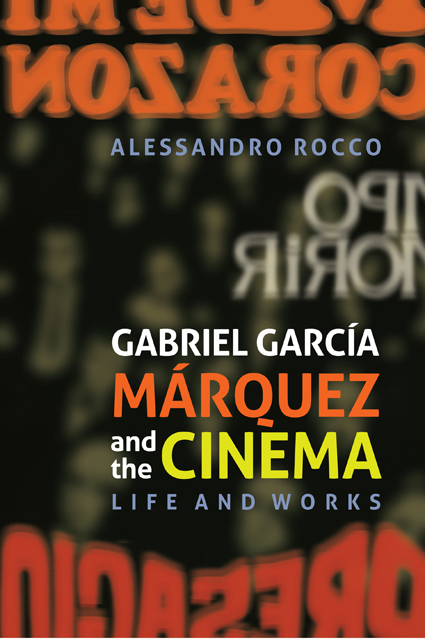Book contents
- Frontmatter
- Dedication
- Contents
- List of Illustrations
- Acknowledgements
- Preface
- 1 The Cinema in the Life of García Márquez
- 2 Tiempo de morir
- 3 Films from the 1970s: The Ghosts of Realism
- 4 Screenplay and Revolution: ¡Viva Sandino!
- 5 Magic Realism in the Cinema
- 6 Six Episodes for Cinema and Television: Amores difíciles
- 7 Con el amor no se juega
- 8 The Fantastic on Television: Me alquilo para soñar
- 9 History and Tragedy: Edipo Alcalde
- Afterword: Works by García Márquez Adapted for the Cinema
- Bibliography
- Index
6 - Six Episodes for Cinema and Television: Amores difíciles
Published online by Cambridge University Press: 24 February 2023
- Frontmatter
- Dedication
- Contents
- List of Illustrations
- Acknowledgements
- Preface
- 1 The Cinema in the Life of García Márquez
- 2 Tiempo de morir
- 3 Films from the 1970s: The Ghosts of Realism
- 4 Screenplay and Revolution: ¡Viva Sandino!
- 5 Magic Realism in the Cinema
- 6 Six Episodes for Cinema and Television: Amores difíciles
- 7 Con el amor no se juega
- 8 The Fantastic on Television: Me alquilo para soñar
- 9 History and Tragedy: Edipo Alcalde
- Afterword: Works by García Márquez Adapted for the Cinema
- Bibliography
- Index
Summary
As we have already seen, Amores difíciles was an important project from various points of view: the sheer size of the series’s production and promotion, the involvement of the Cuban cinema school and six well-known directors, and the centrality of the screenwriter. Six stories by García Márquez, developed in collaboration with the directors and the other co-screenwriters, constituted the starting point for the whole project. Two were from El amor en los tiempos del cólera, two were subsequently published in the collection of short stories Doce cuentos peregrinos, and two were original stories written ad hoc. The tenuous thread running through the series is the story of difficult and unconventional loving relationships which are complicated and resolved in surprising ways. There is a varied spectrum of topics involving filial love and relationships of friendship or passion, with some deviant variations. All the episodes tend to start from a situation that is unconventional in a greater or lesser degree: the mystery of a perfectly preserved corpse, the obsessive, split personality of a German governess, the disappearance of a child who fakes his own abduction, the scribe who writes love letters for both parties, the actress who is raped and falls in love with her assailant, and the rich merchant who woos a pigeon fancier by sending her messages using her carrier pigeons. The episodes rely on a mechanism of surprise, challenging the spectator’s expectations and striving to maintain a certain degree of unpredictability and alienation, exemplifying fiction based on curious happenings. Lastly, one should bear in mind that these films were also intended for television, with an inevitable attenuation in dramatic tension and overall impact.
El verano de la Señora Forbes
The screenplay for the film El verano de la señora Forbes (1988) is an adaptation of the short story García Márquez wrote in 1976 called ‘El verano feliz de la señora Forbes’, republished in the collection Doce cuentos peregrinos. The story features the tragic epilogue of the seaside holiday of two children whom their parents place in the care of a German governess. The latter, Miss Forbes, is found dead in her room after taxing the children to the limit with her severity and peculiar behaviour, so that eventually they set up a plan to kill her.
- Type
- Chapter
- Information
- Gabriel García Márquez and the CinemaLife and Works, pp. 111 - 138Publisher: Boydell & BrewerPrint publication year: 2014

